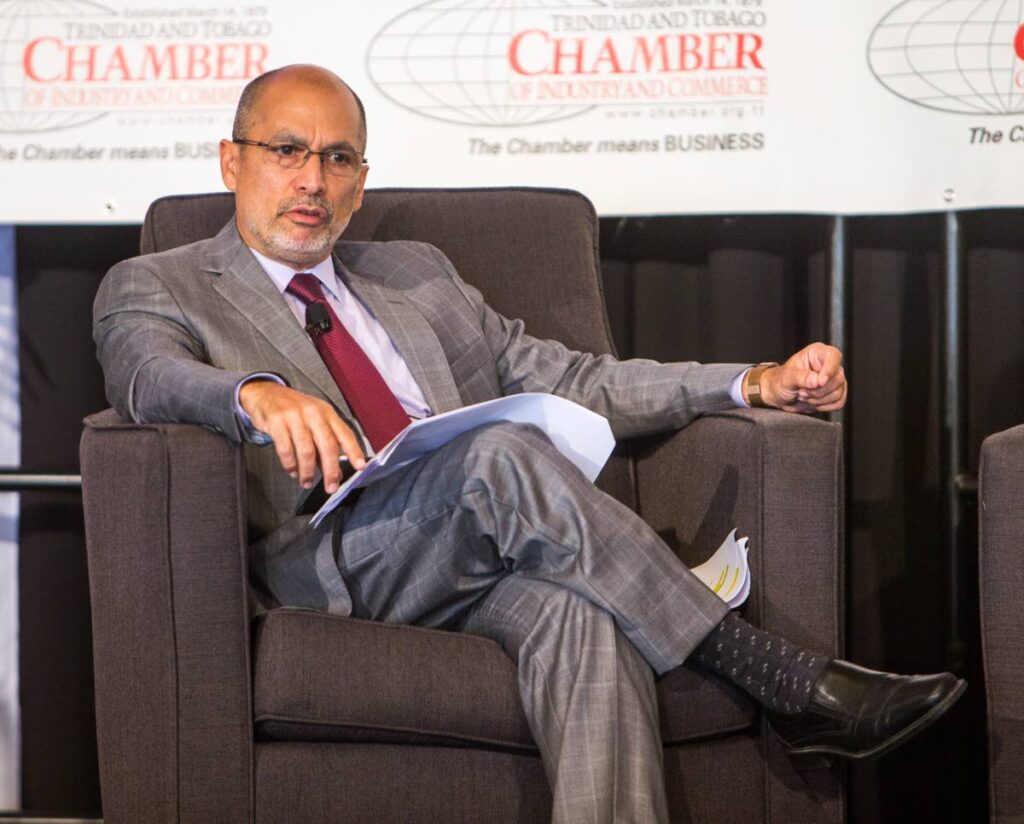Faria concerned at 'uneven' economic growth in Trinidad and Tobago

RETIRED CEO of the TT Chamber of Commerce Gabriel Faria said the period of economic growth the country experienced last year, was marked by "uneven growth" in sectors such as finance doing very well, but other critical sectors needing help even up to this day.
He was reacting to a Newsday story on Monday about a statement by the Central Statistical Office (CSO) that TT experienced a $5.5 billion rise in GDP (gross domestic product) from the second quarter (Q2) to third quarter (Q3) last year. In that period, the CSO said, GDP rose from $38-$44 billion.
In general terms, GDP refers to the monetary or market value of all goods and services produced by a country within a specified time period and is used as an indicator of a country's economic health.
Faria, the CEO of Caribbean Advocacy – a regional advisory practice supporting the private sector – said any increases must be viewed against a backdrop of activity in the prior reporting period.
"There are sectors which performed very well, financial institutions, supermarkets, pharmacies etc. Manufacturing did fairly well last year, versus the prior year when they suffered from a reduced demand in the region due to low tourism," Faria said.
He however added that, "It was a very uneven growth as many sectors suffered badly while some excelled."
Faria said that in 2020, gasoline sales were down by 20 per cent compared to the year before. "It grew in 2021 but was still down 15 per cent on 2019 levels."
"Shoes and clothing, that discretionary spending, were very significantly down. Most people are not spending on that kind of discretionary spend.
"Yet you have sectors like the financial sector which was doing simply amazing. You'd have seen insurance and banks do very well. That was driven largely by investment income as many of those organisations invest in the US stock market which had an excellent 2021." He said even the TT stock market had an excellent year last year.
However, he lamented that consumer discretionary spending was lagging.
"Our overall economic growth does not really reflect the pain many of the smaller businesses in TT are facing." Faria urged, "The sectors which have been adversely impacted are in dire need of support.
"Caribbean Advocacy is hopeful the Government will look at mechanisms to provide support to these groups."
He said feedback from organisations like the Inter American Development Bank (IDB) is that TT will not get back up to 2019 levels, until 2024 for the earliest.
"We will get recovery, but 'recovery' is a relative term."
"Recovery of 2022 over 2021 is a no-brainer. Recovery of 2021 over 2020 is also a no-brainer. But are we going to go back to 2019 (levels of economic activity)?"
Regarding an 89 per cent growth in the construction sector due to the installation of the Cassia platform, he said 89 per cent of a small amount of activity in the period before, was unimpressive.
He hoped for a boost to the light manufacturing sector.
Saying 85 per cent of TT-made goods were sold within Caricom, he said except for Guyana, many of these countries' economies did not do well in 2020 to the detriment of TT's manufacturers. "Hopefully we'll see a pick up."
Faria said when those countries' tourism sectors pick up, that will benefit TT's exports of items such as sweet drinks which were sold to employees in that sector.
He said the positive impact of rising oil and gas prices would likely be seen in TT by both the spend of those employed in the energy sector, and by the Government's energy revenues being used to support subsidies such as the price at the pump of gasoline and the cost of fuel consumed by TTEC to generate electricity for the population. However he noted a low production of oil and gas.
"If they could export more natural gas or more ammonia or those type of products, it will be better for the economy.
"The impact will happen in certain sectors but the flow through to the rest of the economy may take several quarters before we start to see some benefit."

Comments
"Faria concerned at ‘uneven’ economic growth in Trinidad and Tobago"